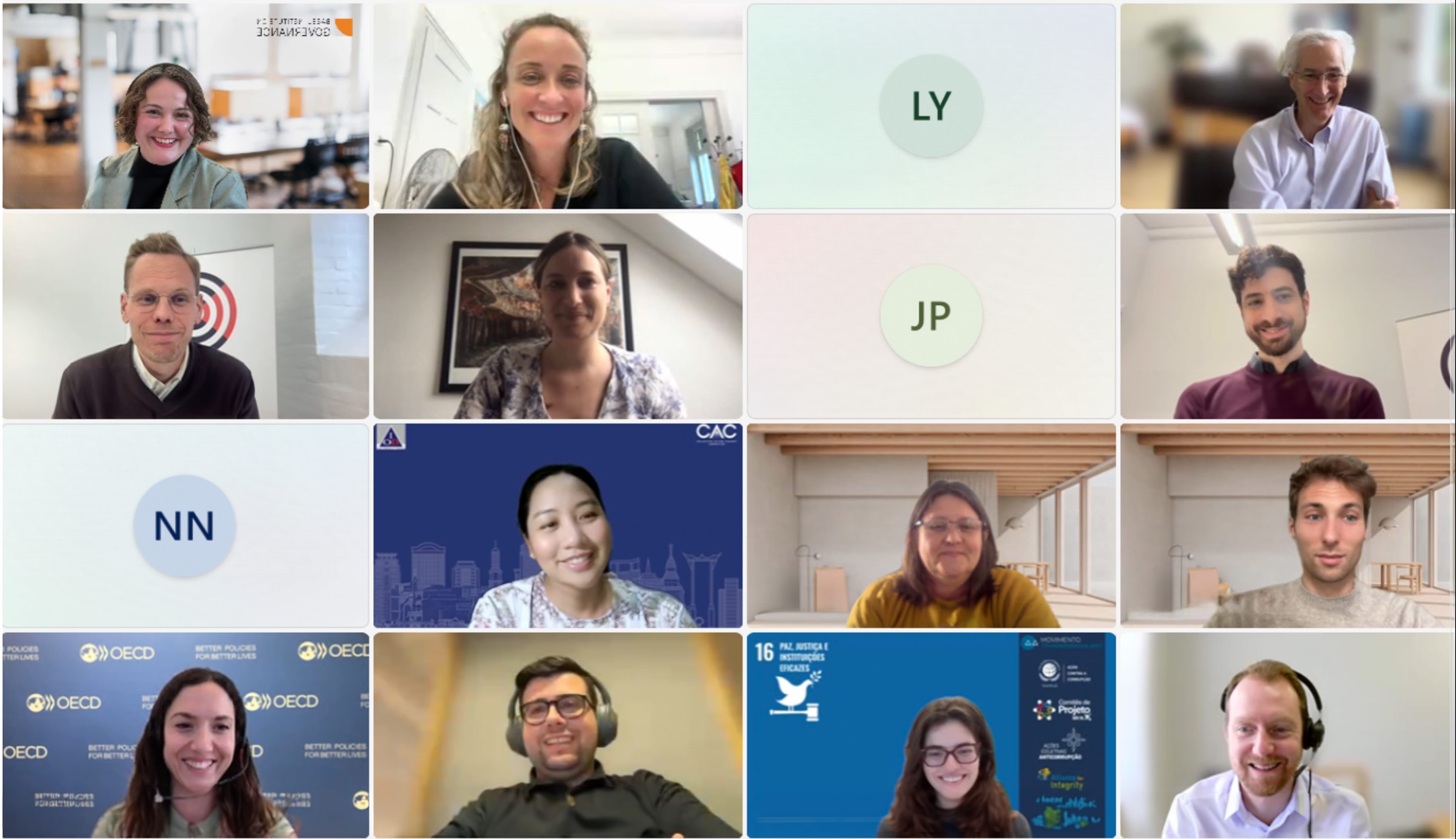Stronger together: the Collective Action community as a beacon for business integrity

In these times of geopolitical instability and changing government priorities, business integrity risks being sidelined – just when it’s needed most.
Strong compliance programmes and ethical business environments are essential for navigating volatility, maintaining trust and ensuring resilience. And anti-corruption Collective Action has proven to be an effective, efficient way to both strengthen compliance and contribute to fair market conditions. It does this by bringing together the private sector with other stakeholders from government and civil society in a sustained, trust-based collaboration.
Against this backdrop, the Basel Institute on Governance brought together over 30 practitioners from around the world for the 2025 Collective Action Peer Learning Workshop. Across three virtual sessions from 2 to 4 June, they reflected on the past, present and future of this tried-and-tested approach.
Participants included representatives of organisations funded by the Siemens Integrity Initiative or part of the Basel Institute’s Collective Action Mentoring Programme. All are part of a growing global “community of practice” advancing integrity through Collective Action.
The takeaways below show the depth and diversity of experience of the members and how much they can contribute to raising standards of integrity and fair business around the world.
The power of data for consensus and buy-in
The first session took stock of lessons learned over the past decade. Martin Benderson and Ignacio Kantor of the Maritime Anti-Corruption Network (MACN) demonstrated how data, when collected consistently and used strategically, can empower stakeholders and drive reform. MACN’s anonymous incident reporting system and Global Port Integrity Platform now cover more than 1,300 ports, revealing patterns of corruption that help members, governments and local actors take targeted action. Martin highlighted:
“Data gives authority and can be instrumental in convincing governments and other stakeholders to recognise the challenge and take action.”
Participants agreed: data doesn’t need to be perfect. What’s essential is building simple, sustainable collection methods. Stakeholders should also be involved in interpreting results to ensure the data “reflects lived realities and not just metrics”.
Other takeaways included the importance of trust, the value of strong alliances and the patience required to build them. One participant shared:
“Building trust among diverse stakeholders is the most crucial lesson I’ve learned, as it forms the foundation for any successful Collective Action initiative.”
Another added:
“The building of a collective consensus takes time, but it’s rewarding”.
Participants agreed that it is crucial to focus on realistic, well-designed goals and learn from peers when challenges arise:
“Don’t reinvent the wheel. Seek similar projects, challenges or industries and learn from them.”
What we can learn from corrupt networks
In the second session, the Basel Institute’s Dr Claudia Baez Camargo explained how research on corrupt networks (see, for example, this Quick Guide, Policy Brief or Case Studies in East Africa) can be applied to make Collective Action initiatives more effective.
Corrupt networks of businesspeople and elites are often formed to solve a challenge or pursue a collective goal. These range from easing access to public services to obtaining business opportunities or helping a business to run smoothly.
Collective Action initiatives could focus on solving some of those goals, for example by finding transparent ways to increase business opportunities for all, or collectively working with government to design smarter regulations.
There are also important lessons to be learned about the different roles people in Collective Action initiatives can play, and about how to best manage and maintain the initiatives.
What’s in it for us? Making the case for integrity
The third session explored how to maintain momentum and relevance of Collective Action initiatives.
Pinn Siraprapasiri of the Thai Collective Action Against Corruption (Thai CAC) presented an inspiring example of how business incentives, such as tax incentives, better credit terms or preferred vendor status, can reinforce ethical conduct. In Thailand, the anti-corruption certification offered by Thai CAC is now a requirement for companies bidding for government procurement projects above a certain threshold.
Breakout groups tackled delicate questions:
- Can business incentives work when anti-corruption enforcement is weak or inconsistent?
- How can we keep Collective Action alive in fragmented political environments?
The discussions revealed both challenges and hope. One participant summarised:
“Incentives can go a long way when they align with business interests, but to really move things forward, we need both carrots and sticks.”
The community agreed that access to peer support, shared learning and tangible benefits remain key to keeping companies engaged in Collective Action initiatives in the long term.
A growing community, ready to act
Participants agreed on the urgent need to make Collective Action initiatives sustainable and resilient in these uncertain times. One emphasised the value of the Basel Institute’s proactive role in convening practitioners, saying:
“Workshops like this are vital to keep the Collective Action community alive, and help us adapt to fast-changing topics like Environmental, Social and Governance (ESG) standards and artificial intelligence.”
Another reflected:
“Over the years, we’ve built real relationships that go beyond projects or mandates. That’s what makes this community so valuable – it lasts.”
The workshop closed with a celebration of the winners of the 2025 Collective Action Awards.
In today’s unpredictable environment, business integrity is a collective responsibility. Companies that have strong compliance programmes and reach out to other stakeholders are better equipped to withstand shocks, navigate complexity and thrive in the long term.
At the Basel Institute, we are committed to supporting companies, organisations and governments in working individually and collectively towards better business integrity and fairer market conditions. If you’d like to learn more and get involved, check out our B20 Collective Action Hub and join the LinkedIn group of our emerging community of practice, designed to serve as an open space for ongoing peer exchange.


